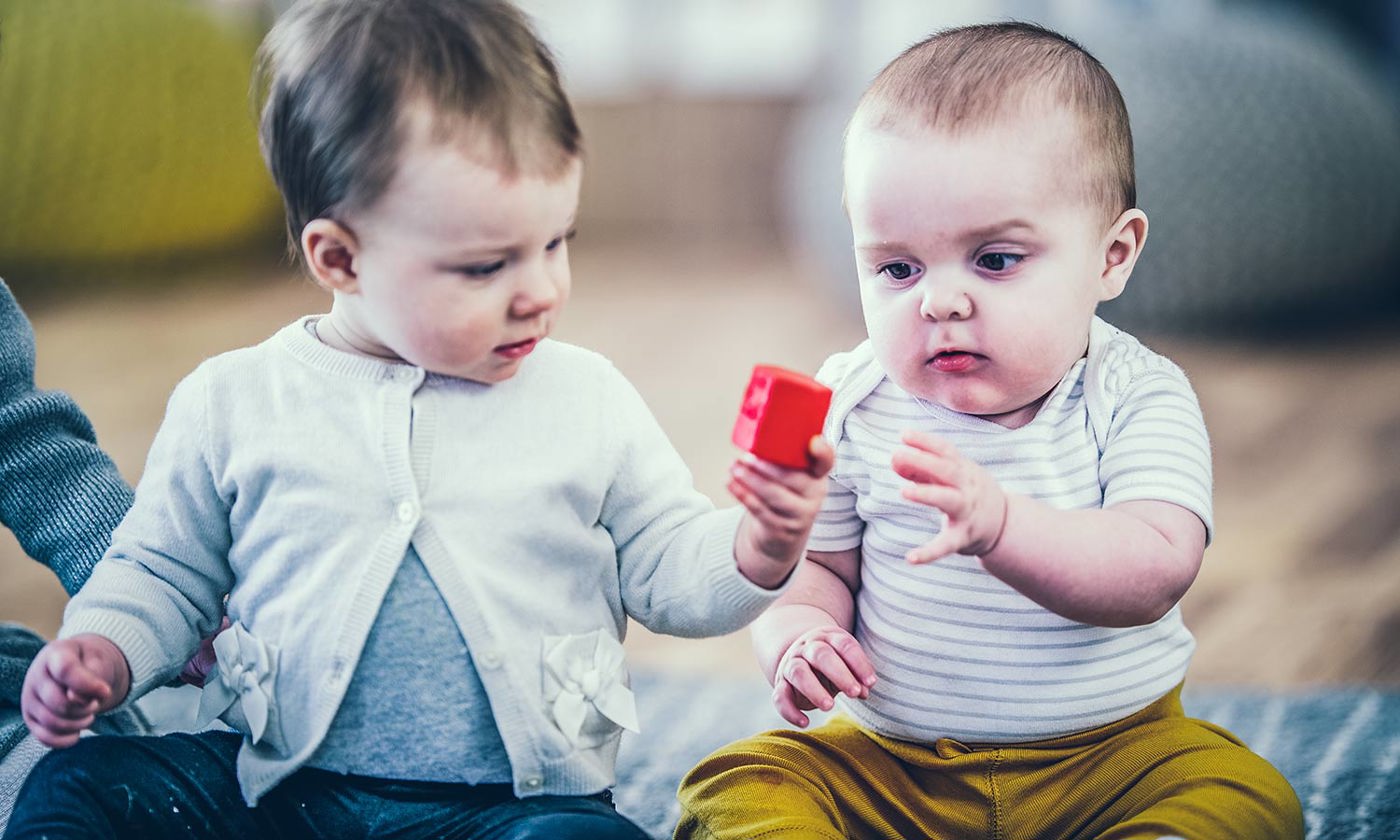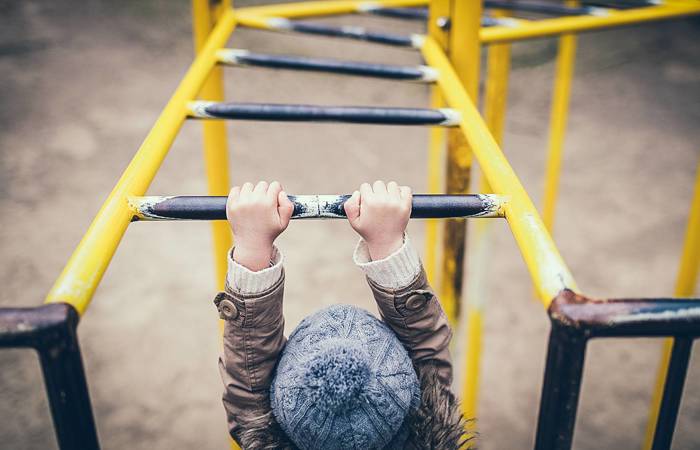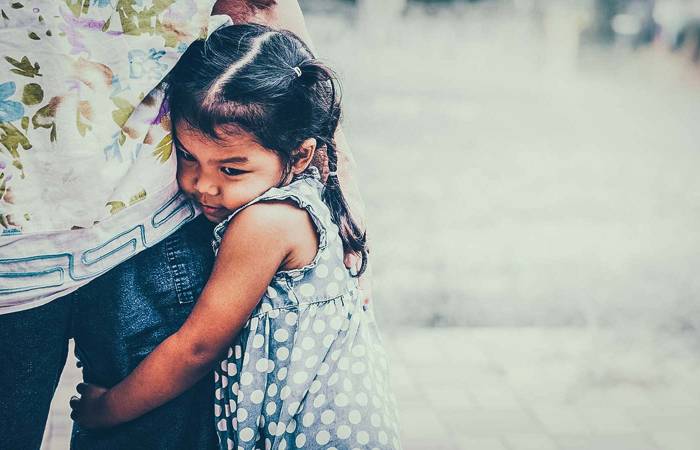Like what you see?
Sign up to receive more free parenting advice.
Thank you for subscribing to our newsletter!
Child Development

Credit: iStock.com/FatCamera
Any parent who has watched two toddlers reduced to heartbreaking sobs over the same blue ball understands that learning to share is not simple.
The concept of sharing is something most parents try to instil in their children from a young age and while it sounds simple, learning to share is quite a complex life skill for children to master.
A two-year-old’s grasp of the idea of having to share a toy is quite different from how a four or five-year-old sees sharing.
Why is sharing important for a child?
Does a young child have to share everything, or are there some things they don’t ‘have to’ pass onto their friends if they don’t wish to? And when you tell a child to share food, like their toys, should they have an expectation they are going to get it back? Learning to share or take turns means grasping some new concepts.
Dr Elizabeth Westrupp, clinical psychologist at Deakin University says when teaching your child to share there’s no single approach that’s going to make sense for every family situation.
Children often have at least one special toy or item that they keep close to them, whether it be a soft toy or a baby blanket, or a favourite toy car or doll. There might be times when other children want to play with their special toy or item – but should they be forced to share if they don’t want to?
“If we reflect as adults, and think about our own special objects, there will be some things that we don’t want to share with others. If we acknowledge that there are things of ours that we don’t necessarily want to share, then we can’t expect a child to share everything either,” Dr Westrupp says.
“When you’re teaching children the concept of sharing, you can teach different things at different ages and it’s important to consider the child’s brain development.
“A child aged 3-5 has already developed the ability to see from others’ viewpoint but a child aged 1-2 doesn’t have that skill yet. This can also mean that some three-year-olds can struggle with the idea of sharing because they do understand what it means and it feels painful for them but there are strategies to make it less stressful for them.”
Tracy Bentin, psychologist at Stepping Stones Psychology, says sharing is not an easy skill for young children to learn.
“It’s important we help our kids learn how to share, but it’s not necessary as they grow that they share with everyone. There are some things that can just belong to them and they don’t necessarily like to share with others,” she says.
The main problem is when kids don’t really have the language around sharing and turn taking. They also don’t have a good concept of time so they wouldn’t know how long their friend is going to have their toy. Does this mean I’m going to lose it? Will it be given back to me? Sharing and turn taking can be very confusing for little ones.Tracy Bentin
Stay up to date with the latest news and articles from First Five Years
Thank you for subscribing to our newsletter!
Teaching the concept of turn-taking
Ms Bentin says it’s more about helping children learn that it’s important to share and it’s also important to let people know when they’re not happy to share something that’s special to them.
“What’s very valuable is teaching children the idea of turn taking. If something doesn’t belong to you, it’s good to ask to have a turn. It’s a matter of changing the language.
“Rather than focusing on sharing, focus on turn taking. For example, ‘They really like your scooter or toy, maybe they can have a turn?’.
“The main problem is when kids don’t really have the language around sharing and turn taking. They also don’t have a good concept of time so they wouldn’t know how long their friend is going to have their toy.
“Does this mean I’m going to lose it? Will it be given back to me? Sharing and turn taking can be very confusing for little ones.”
Ms Bentin believes the word ‘sharing’ gets used a lot and sometimes it’s difficult for children to really grasp the meaning.
“For example, if you tell your child to share his chips – he’s not going to get his chips back because someone has just eaten them! So the word sharing can have a bit of a double meaning at times.
“When you’re teaching children to share, it’s all about the language. If you’re talking about toddlers, it’s a good idea to set up a task where two or three of them can join in the same activity without having to negotiate the use of a single item.
“For example, if the kids are playing with toy animals, don’t just have one animal, have several toys. And if they’re using crayons or pencils, have several colours for them to share, so they can all be involved.”
Age appropriate sharing
When it comes to age appropriate sharing, Ms Bentin believes when children are three and under it’s all about playing together.
“That way they can all be involved and then, when they’re older, you can say things like ‘Okay, you’ve had your turn, now give it back to your friend then you can have it again soon’,” Ms Bentin says.
“Learning to play and get along with others is something we can do with toddlers but they don’t really have a concept of sharing until the age of four or four and a half. Any younger than that, the child doesn’t quite understand the language around sharing.
“It’s actually very complicated when you break it down – sharing isn’t an easy concept so parents shouldn’t expect a child aged two or three to really understand what it all means.”
Dr Westrupp believes sharing doesn’t always have to be directed by the parents.
“When it comes to sharing I think there are two factors; trying to support our kids to develop social skills and also to develop independence. But, to some extent, the best way to teach kids about sharing is just to trust them to sort it out themselves,” Dr Westrupp says.
“This means stepping back a little bit and let them begin to learn skills of negotiation. There does need to be supervision, to provide boundaries, so you can stop any disrespectful language. You can still monitor their behaviour, but you can trust your kids more.
“Of course, different cultures approach the concept of sharing differently – in some cultures the idea of individual property isn’t as big as it is in other. So, I think it’s important for parents to reflect on what their key values are and whether sharing is more important than other skills.”






